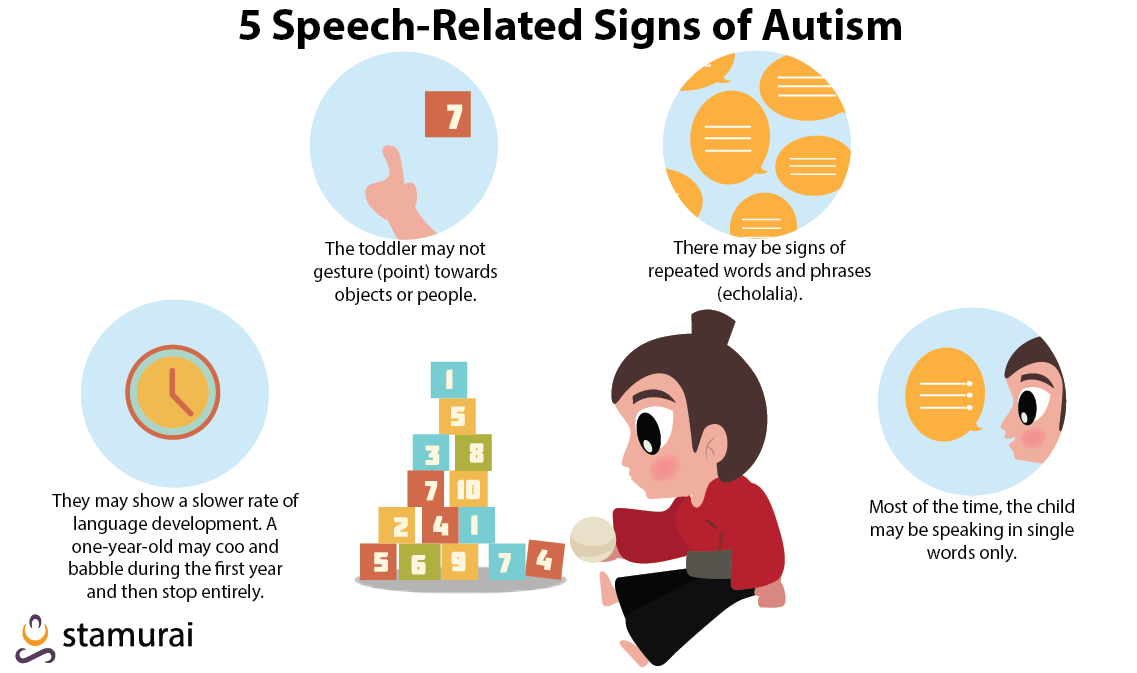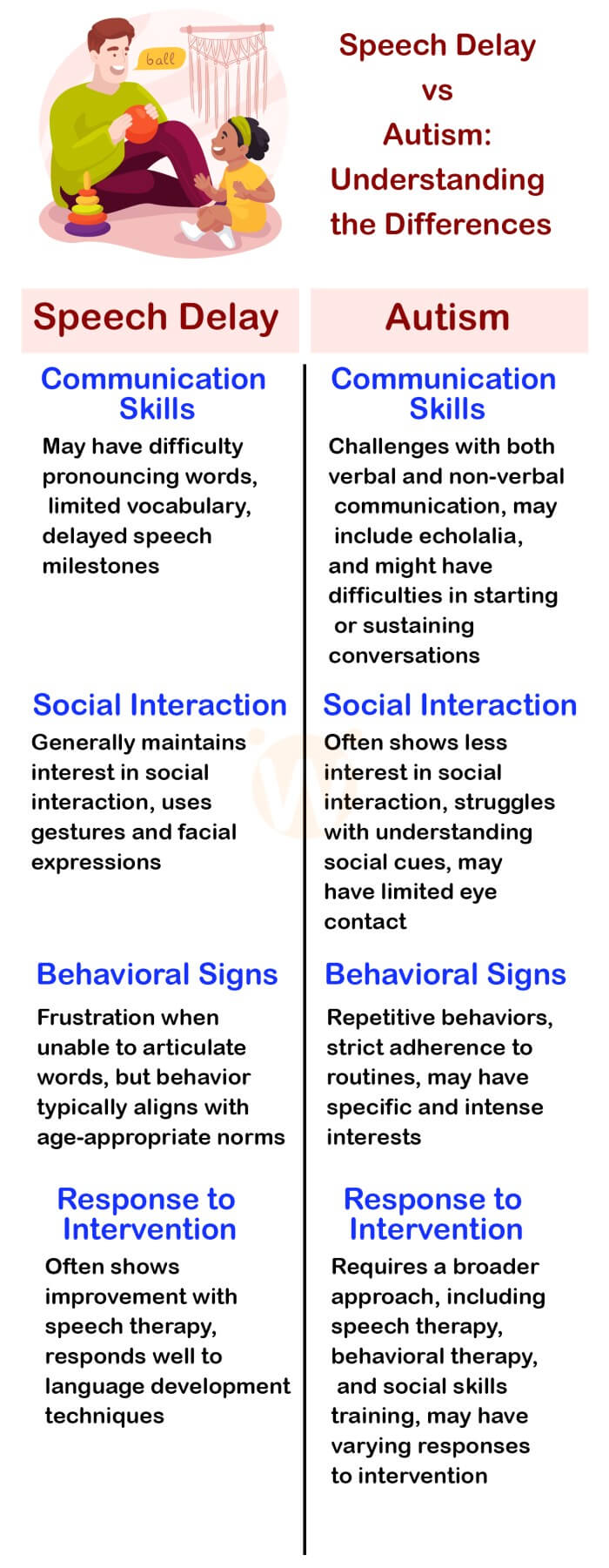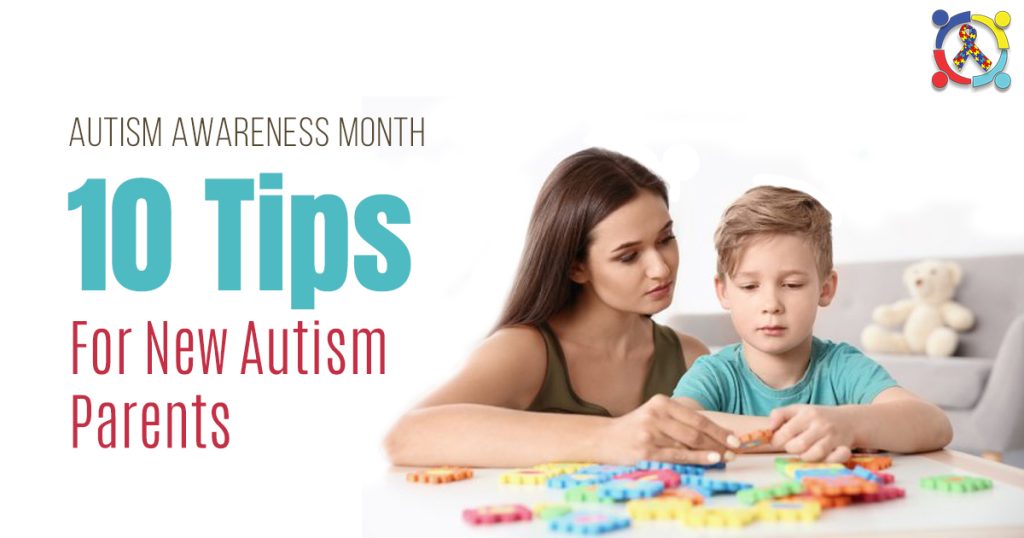Worried about your child’s speech development? You’re not alone.
Many parents find themselves asking, “Is speech delay a sign of autism? ” It’s a question filled with concern and the need for clarity. Speech is a crucial part of how we connect with the world, so it’s natural to be anxious if your child isn’t hitting milestones.
Understanding the link between speech delay and autism can be crucial in taking the right steps for your child’s development. You’ll discover the difference between a simple delay and a potential sign of autism, helping you make informed decisions with confidence. Let’s unravel the facts together, so you can find peace of mind and support for your little one.
Understanding Speech Delay
Speech delay can sometimes be associated with autism, but not always. Each child develops at their own pace. It’s important to consult a specialist to understand the reasons behind speech delay and get appropriate support.
Understanding speech delay can be challenging for many parents. Speech delay is when a child doesn’t speak as expected. It’s crucial to know if it’s a normal variation or a sign of something more. Children develop speech skills at different rates. Some kids talk early, while others take their time. It’s essential to understand the causes and milestones of speech development.Common Causes Of Speech Delay
There are several reasons for speech delay in children. Hearing problems can make it hard for kids to learn sounds. They might not hear words clearly, leading to delays. Other causes include oral impairments. Problems with the tongue or palate can affect speech. Environmental factors also play a role. Children who don’t interact much may not develop speech skills quickly. Some kids have developmental disorders. Autism is one of these. It can affect communication skills and cause speech delays. But not all speech delays mean autism.Speech Development Milestones
Knowing speech milestones helps track a child’s progress. By 12 months, most babies say simple words like “mama” or “dada”. They also understand basic words and gestures. By 18 months, toddlers usually know 20 words. They start to combine words into short phrases by age two. Simple sentences form around age three. Kids should understand basic instructions by then. If a child misses these milestones, consulting a pediatrician helps. Early intervention can make a significant difference. Understanding these milestones guides parents in supporting their child’s speech journey.Autism Spectrum Disorder Basics
Autism Spectrum Disorder (ASD) is a complex developmental condition that affects communication, behavior, and social skills. Understanding its basics is crucial for identifying its early signs and taking timely action. ASD encompasses a wide range of symptoms and characteristics, and no two individuals experience it in the same way. This diversity is what makes autism a spectrum, offering varying degrees of challenges and strengths.
Characteristics Of Autism
Autism manifests differently in each person, but there are common characteristics you might observe. These can include repetitive behaviors, difficulty with social interactions, and challenges in communication. You might notice a child having a keen interest in specific topics but struggling to engage in conversations. Some may excel in visual or musical skills while facing challenges in verbal communication. These patterns make each individual’s experience with autism unique.
Early Signs And Symptoms
Recognizing early signs of autism can lead to early intervention, which is crucial. Some signs appear as early as infancy, such as limited eye contact or delayed speech development. If your child exhibits a lack of response to their name or struggles to express their needs verbally, these could be early indicators. Observing how your child interacts with others and responds to sensory stimuli can also provide insights.
Consider a personal story: A parent noticed their toddler was more interested in lining up toys than playing with them. This led to a deeper understanding of ASD and seeking professional advice. This proactive approach can make a significant difference in supporting your child’s development.
If you suspect speech delay, it’s important to ask: Could this be a sign of something more? While speech delay doesn’t always indicate autism, it can be a clue worth investigating further. Engaging with professionals and exploring resources can empower you to make informed decisions for your child’s well-being.
Speech Delay In Autism
Understanding speech delay can be challenging for parents. It may be linked to autism, but not always. Speech delay and autism are separate conditions. They can have similar symptoms, though. Knowing how they differ is important. This helps parents make informed decisions.
Speech Patterns In Autistic Individuals
Children with autism often have unique speech patterns. Some may repeat phrases or words. This is known as echolalia. Others might struggle to form sentences. They may use gestures more than words. Nonverbal communication can be strong in these individuals. Some may speak in a monotone voice. Others might have difficulty with pitch and tone. This can affect how their speech is perceived.
Differences Between Speech Delay And Autism
Speech delay means slow development in speaking skills. It doesn’t always indicate autism. Autism involves a range of social and communication challenges. Speech delay can occur without autism. Autism may include repetitive behaviors and restricted interests. These are not typically seen with speech delay alone. Professional assessment is crucial for accurate diagnosis. Early intervention is key to supporting development. Parents should seek advice from experts if concerned.
:max_bytes(150000):strip_icc()/is-late-speech-a-sign-of-autism-259888-v2-2cd7a2607c79463db302094da6fbf934.jpg)
Credit: oratoryclub.com
Factors Differentiating Speech Delay From Autism
Understanding the distinction between speech delay and autism is crucial for parents and caregivers. Both conditions can affect a child’s ability to communicate, but they involve different challenges and developmental paths. If your child is experiencing speech delays, it’s important to consider various factors that differentiate this from autism.
Behavioral Indicators
Speech delay often manifests as simple difficulty in forming words and sentences. A child may be slow to start speaking but still show understanding and interaction. In contrast, autism might involve repetitive behaviors or an intense focus on specific interests. For instance, a child with autism might line up toys obsessively rather than play with them creatively.
Consider how your child reacts to changes in their routine. Does your child get upset by minor changes or exhibit unusual behavior patterns? This can be a sign of autism rather than a mere speech delay. Identifying these behaviors can be the first step in seeking appropriate help.
Social Interaction Challenges
Children with speech delay often attempt to communicate in other ways, like gestures or facial expressions, showing eagerness to connect. They might struggle with words but still engage in social play and interaction. On the other hand, autism can present challenges in social interaction.
Think about how your child interacts with peers. Is there a noticeable lack of eye contact or an absence of interest in playing with others? Children with autism may prefer solitary activities or have difficulty understanding social cues. Observing these interactions can provide valuable insights into your child’s development.
Have you ever noticed your child playing alone even when surrounded by other kids? This might indicate autism rather than speech delay. Pay attention to how your child seeks comfort or expresses feelings. These social aspects can be as telling as verbal communication.
Identifying these factors isn’t about labeling your child; it’s about understanding their unique needs. What steps will you take to support your child’s development? Consider professional guidance to navigate these challenges effectively.
Assessment And Diagnosis
Speech delay can sometimes indicate autism, but not always. Many factors influence language development in children. Professional assessment helps clarify the reasons for speech delay, guiding appropriate interventions.
Understanding the process of Assessment and Diagnosis for speech delay can be crucial in determining whether it’s a sign of autism. For many parents, noticing that their child isn’t meeting speech milestones can be worrying. How do you know if it’s just a delay or something more? Professionals use a combination of observations, tests, and tools to make an accurate diagnosis. This approach helps differentiate between speech delay and autism, ensuring that children get the right support.Role Of Speech Therapists
Speech therapists play a vital role in assessing speech delay. They evaluate a child’s ability to understand and use language. Through games and interactive sessions, they observe how children express themselves. They ask questions like: Can your child follow simple instructions? Are they using gestures to communicate? Speech therapists also provide insights into a child’s social skills, which can be an indicator of autism. Their expertise helps in crafting personalized strategies to improve speech and communication.Importance Of Early Intervention
Early intervention can significantly impact a child’s development. If you suspect your child has speech delay or autism, seeking professional help early can lead to better outcomes. With early intervention, children can develop essential communication skills sooner. This proactive approach can ease their integration into social environments. Would you wait for more signs or act on your instincts? Acting swiftly can make a difference in your child’s life, providing them with the tools they need to thrive.Assessing whether speech delay is a sign of autism requires a collaborative effort between specialists and parents. By involving speech therapists early, and considering intervention, you ensure your child gets the support they need. This journey is about understanding and empowering your child, giving them a voice in a world filled with possibilities.
Treatment And Support Options
Understanding speech delay can be a challenge for many parents. Autism is one possible cause, but not the only one. Early intervention offers hope and direction. Families need proper treatment and support to help their child. This involves various therapies and community resources. Let’s explore these options further.
Speech Therapy Techniques
Speech therapy can greatly aid children with speech delay. Trained therapists use various techniques to improve communication. One popular method is play-based therapy. It engages children through games and activities. This makes learning fun and effective.
Another technique is modeling correct speech. Therapists speak slowly and clearly, encouraging imitation. This helps children understand the rhythm and flow of language. Visual aids, like pictures and flashcards, are also beneficial. They provide a visual link to words and sounds. Consistent practice and patience are essential in speech therapy.
Support For Families
Families need support too. Navigating a child’s speech delay journey can be overwhelming. Support groups offer a sense of community. Parents can share experiences and advice. This mutual support can be comforting and empowering.
Access to resources and information is crucial. Workshops and seminars can educate families about autism and speech delays. They provide valuable insights and strategies for helping their child. Counseling services are another vital resource. They offer emotional support and guidance to families.
Building a supportive environment at home is key. Encouraging open communication and celebrating small victories helps. Families play a vital role in their child’s progress. With the right support, both children and families can thrive.
Current Research And Findings
Understanding the connection between speech delay and autism is crucial. Parents often worry when their child shows signs of speech delay. Current research provides insights into this concern. Studies offer valuable information, helping parents and professionals make informed decisions.
Latest Studies On Speech Delay And Autism
Recent studies explore how speech delay relates to autism. Researchers focus on identifying patterns and signs. They examine the speech development of children with autism. These studies aim to find specific markers. Early diagnosis can lead to better intervention strategies.
Scientists use advanced technology in their research. They analyze brain activity related to speech. Findings indicate differences in brain function. This knowledge helps in understanding speech delay in autistic children.
Future Directions In Research
Researchers are exploring new pathways for understanding speech delay. Future studies aim to refine diagnostic methods. They focus on early detection techniques. These advancements can lead to improved therapies.
Collaboration is vital in future research. Experts from various fields are joining forces. They are working to develop comprehensive solutions. The goal is to assist children with autism in overcoming speech challenges.
Innovative approaches are being tested. These include personalized interventions. Research emphasizes the importance of tailored strategies. The aim is to cater to individual needs of children. Such efforts promise a brighter future for those affected by autism.

Credit: www.stamurai.com

Credit: www.mywellnesshub.in
Frequently Asked Questions
Can A Child Have A Speech Delay And Not Be Autistic?
Yes, a child can have a speech delay without being autistic. Speech delays can result from various factors like hearing issues, developmental disorders, or environmental influences. Early intervention and therapy often help. Consult a healthcare professional for accurate diagnosis and tailored support.
How Do I Know If My Child Has Autism?
Watch for delayed speech, poor eye contact, or repetitive behaviors. Consult a pediatrician for an autism evaluation. Early detection is crucial for effective intervention.
How To Tell If A Speech Delay Is Autism?
Speech delay in autism often accompanies repetitive behaviors and social interaction challenges. Consult a specialist for evaluation. Signs include difficulty with nonverbal communication and limited interests. Early intervention can help.
Will My 8 Year Old Autistic Child Ever Talk?
Every autistic child is unique. Many develop speech with therapy and support, but some may not. Consistent communication practices can help improve their abilities. Consult with specialists to explore personalized strategies for your child. Early intervention can significantly enhance communication skills.
Conclusion
Speech delay can be linked to autism, but it’s not definitive. Each child is unique. Some may have speech delays for other reasons. Early diagnosis helps in understanding the cause. Consulting a specialist is crucial. They can provide guidance and support.
Parents should stay informed and observant. Noticing early signs can make a difference. Speech therapy may be beneficial. Encourage communication through play and interaction. Always remember, patience is key. Every child develops at their own pace. Support and love create the best environment for growth.
Stay proactive and seek professional advice when needed.

